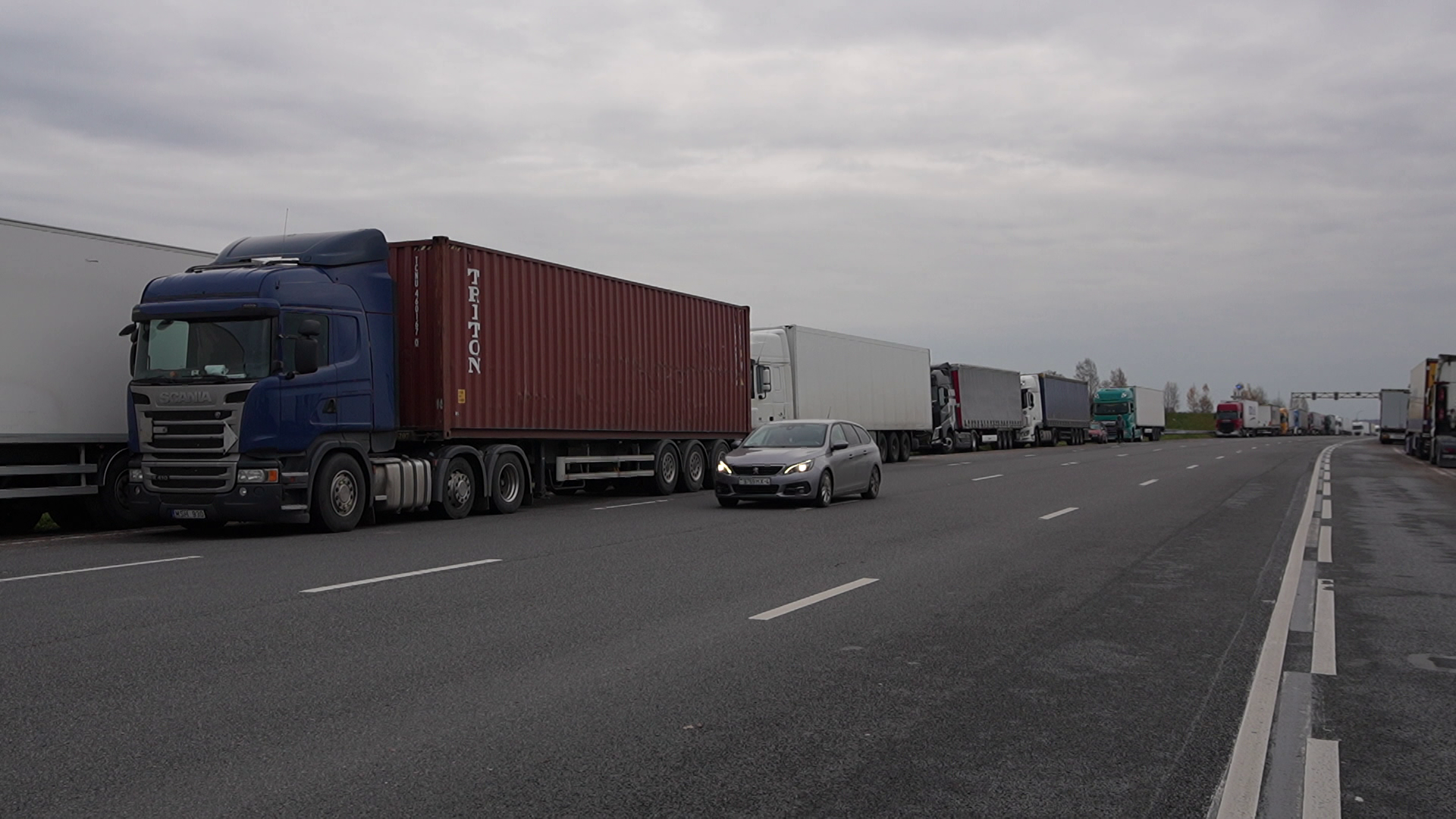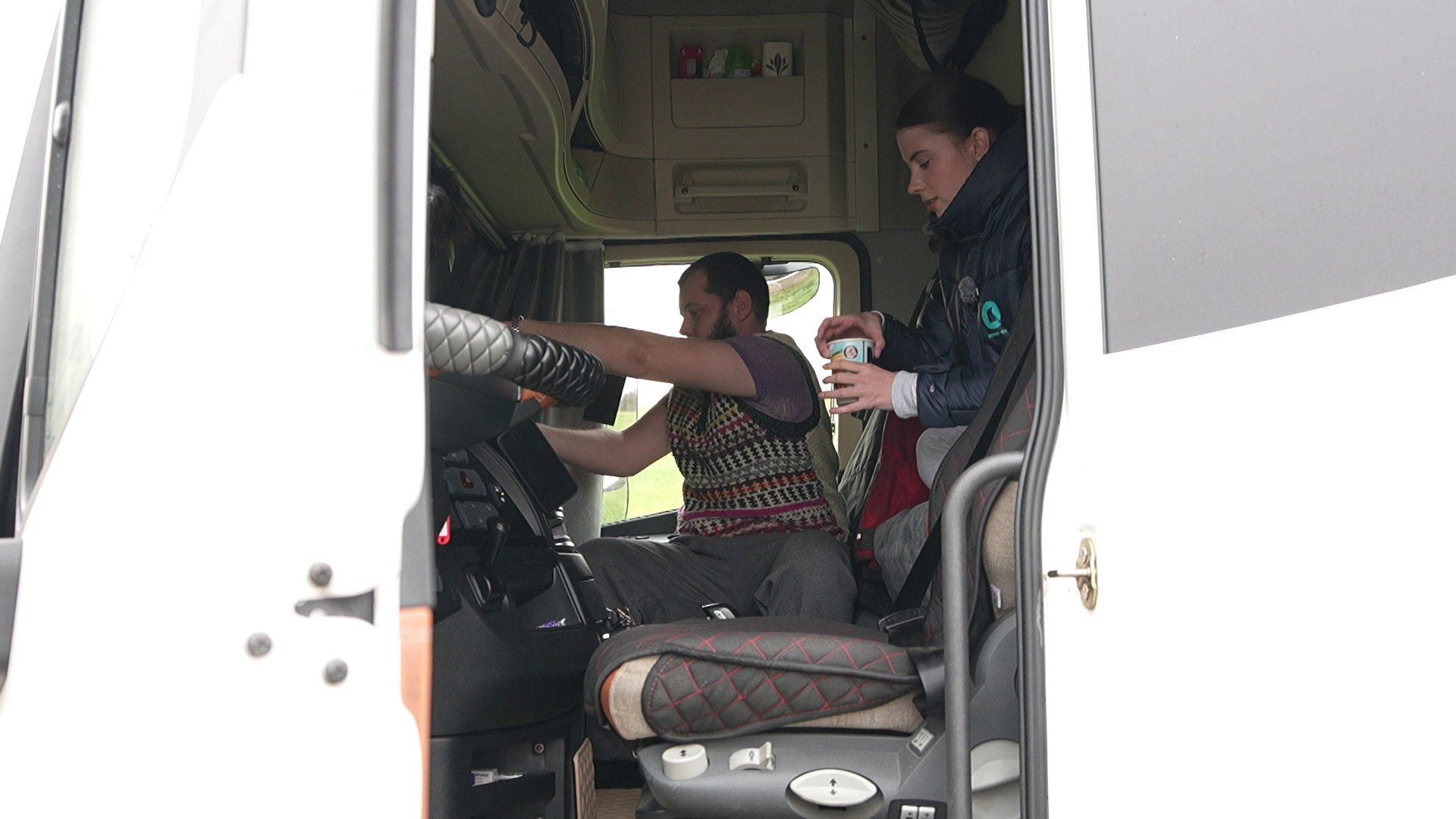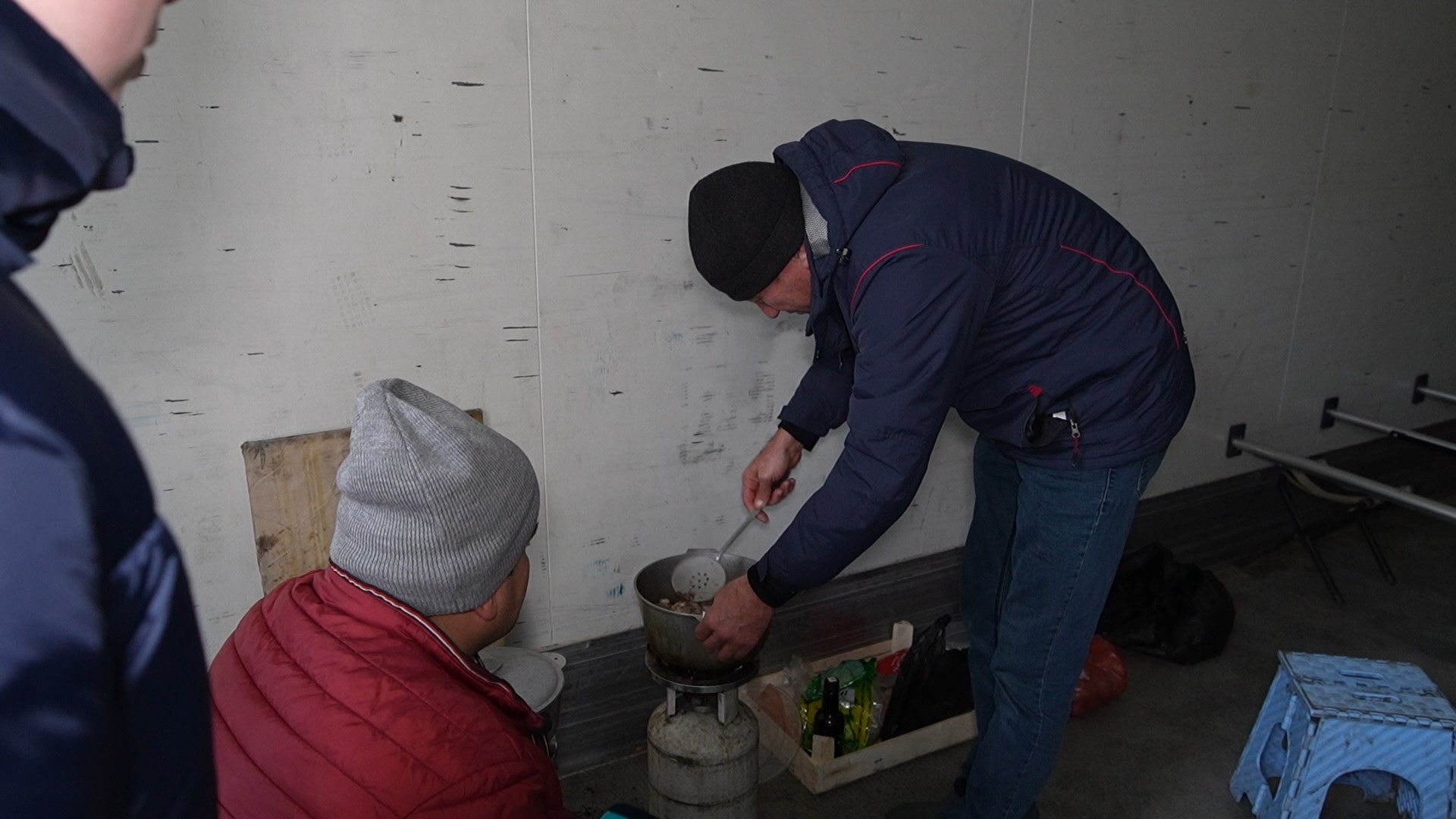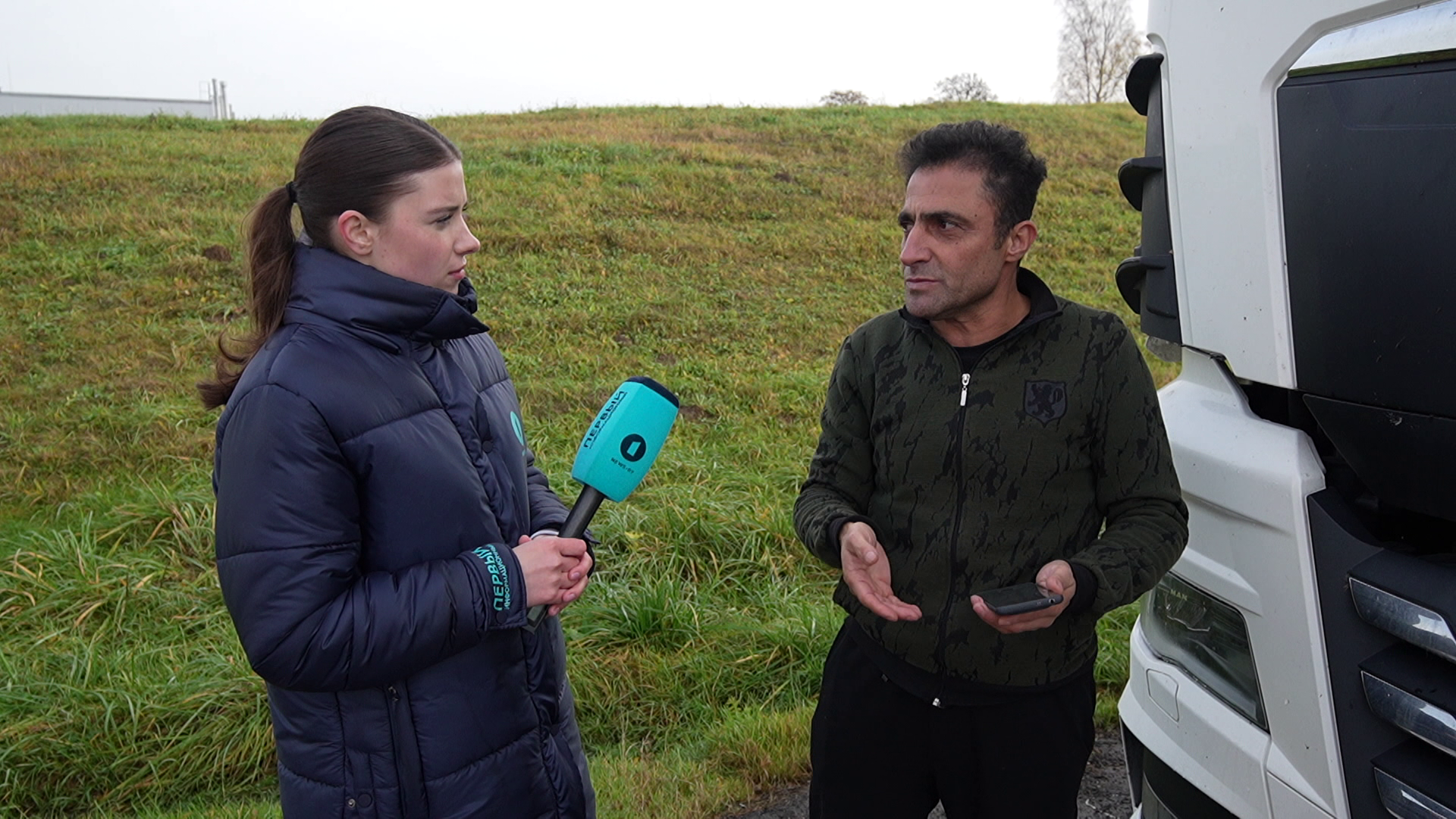3.70 BYN
2.98 BYN
3.46 BYN
Financial losses and food spoilage: consequences of border closure between Belarus and Lithuania

Belarusian President Alexander Lukashenko once again reiterated that Belarus is open to discussions without escalating the situation. However, reaching out to its neighbors is becoming increasingly difficult.
European carriers are already calculating the cost of their trucks stuck in Belarus. Millions of euros are already being discussed, not to mention the fact that the Lithuanian trucks have already been stuck for 25 days, having been queued electronically long before rumors of border closures and weather balloons.
Of course, there are places to buy food and water on the Belarusian side, but will this replace a home? Of course not.
One could imagine people in a restaurant, but the cooking takes place on the Belarusian-Lithuanian border because Vilnius suddenly decided to close it. And that says it all.

This situation of living between the two countries, with no idea when the border will reopen, has been evident for five days now. Before that, it was possible to cross the border. True, you had to wait in lines for 20 or even 30 days, and all of this was done for Lithuanian citizens traveling to Belarus visa-free, but it's the freight carriers who are suffering the most.
Considering that Kamenny Log is the only crossing point from Belarus to Lithuania after the border closure, and only for certain categories of citizens, a correspondent for the First Information Channel experienced what it's like to live at the border.
Mornings at the border begin with everyone washing up wherever they can. Showers are available at a gas station (organized by the Belarusians). You can also wash and dry your clothes there.

Alexander has been waiting at the border for five days. He's carrying perishable goods - cheeses and sausages - from Moscow to Kaliningrad, which, incidentally, is on that "restricted" list where you can travel, but only if you've transited Belarus, though you still have to prove this at the border.
Alexander, a truck driver:
"On October 26th, I arrived in Beniakoni, stood there for two days, and then they said the border would be closed completely. We urgently moved here. Under customs control, you'll have to file a complaint. A truly unfriendly act on Lithuania's part. They simply blocked us. And we can't bring food to our region."
But Alexander's colleagues have been stuck there for 22 days.
EU citizens and their family members, as well as those with residence permits, diplomats, and those transporting Lithuanian diplomatic pouches, are allowed to cross the border, but Uzbekistan, Tajikistan, and Kazakhstan are not included on this list - they're stuck. So, what to do about it? The question is pressing.

"I just joined the queue, but they cancelled it without warning, and the cargo is loaded, so we can't go back. We have no choice but to wait as long as they say," said one truck driver.
Many can't stand such trials, so they abandon their cars and simply drive away - some to hotels, others to their homes. And the empty cars are mostly those with Lithuanian license plates.
The details of the balloon case are already well known: it's a method of smuggling contraband, particularly cigarettes. Yes, Belarusians are involved, but they weren't the ones who ordered or organized them. Lithuania, as has been happening lately, has decided to politicize this situation. Thus, Belarus has joined China and Russia as the latest in Vilnius's official enemies.
Several times a day, a woman named Alina brings reasonably priced, and most importantly, hot, lunches and dinners to the border. It's undeniable that this saves those here, but it's for those accustomed to Belarusian cuisine. Uzbeks, for example, can't eat like Belarusians for 20 days. But a solution was found nonetheless: a ram bought in a neighboring village. The drivers managed to roast it in the truck. Incidentally, the onions and carrots were donated by Russians, so the Belarusian border is a real draw.
But seriously, 10 days of downtime for 2,000 trucks costs €3,000, and Lithuanian truckers are already calculating this, not to mention the net loss, not to mention the risk of all the goods becoming unsaleable.
In these political games, of course, the citizens of the instigators also suffer. Lithuania is doing nothing alone; the European Union and NATO countries are behind all of this. Officially, Ankara is a NATO member, but that doesn't help Turkish truckers at all.

"What will people eat and drink here? I mean, we haven't washed ourselves; we haven't done anything for 30 days," complains a driver from Turkey. The same is happening with Lithuanian carriers. Official Vilnius seems to have divided its citizens into those who can return home today and those who might be allowed to in a month or two.
"They're not even letting their EU citizens in here. My friend has two passports—Russian and Lithuanian - and he stood there for four days and wasn't allowed in," said one driver.
For now, the border is closed until December 1. You can get to Lithuania by going around Latvia or Poland. Currently, only one border crossing - Terespol - is open. How much of a strain does this pose for the official Ministry of Foreign Affairs?















